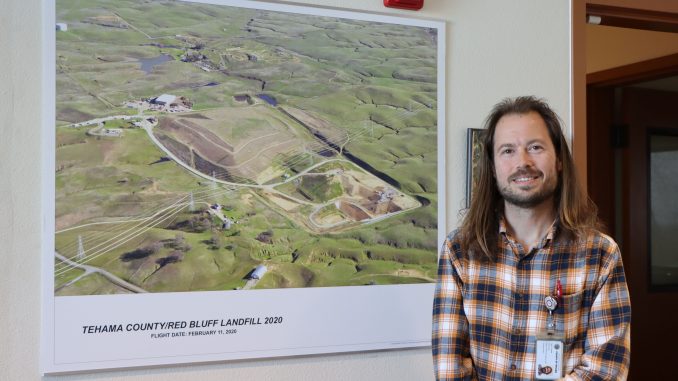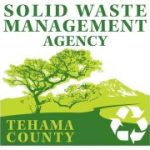
Since its establishment in 2016, SB1383 has sought to reduce methane emissions in landfills by cutting California’s organic waste disposal by 75% and diverting 20% of edible food to people and food banks by the year 2025.
While some counties, such as Tehama County, are exempt from full compliance until January 1, 2027, teams of people such as Paul Freund have been working across the state to educate and prepare businesses and residents for the staggered rollout of the new regulations.
As Organic Materials Program Coordinator for the Tehama County Solid Waste Management Agency, Freund most recently helped the county’s Tier 2 edible food generators—large restaurants and schools with cafeterias—meet a January 1, 2024 deadline for edible food donations.
“We’re working with several schools and cafeterias on waste sorting,” Freund says. “One school has compost bins to divert food scraps from the cafeteria.”
And while the next major deadline for Tehama County isn’t until residential compliance in 2027, Freund believes that the education, resources and practice that helped county businesses succeed in getting ahead of new regulations can help residents in their own home, as well.
Recognizing that sorting organic waste at home or work entails practical and habitual changes, Freund believes the best way to get started is to simply get started—perhaps through backyard composting.
“We’re encouraging that at the residential level all the way up to commercial,” Freund says. “This will help with the diversion, but also establish those practices, get people into the habit of separating their organics and food scraps from other materials instead of just putting it all into the trash.”
To support these practices, the agency offers composting classes and demonstrations and is currently working on creating a community garden in Red Bluff that will include a public composting location.
Intended for a summer opening, Freund hopes this garden will facilitate community composting and be the first of many similar sites in various cities throughout the county.
“If we can actually show people through example how they can convert organic materials,” Freund says, “it will make it an easy process when they’re required to do it in 2027.”
While providing education and resources to communities and businesses, Freund and his team are also examining and preparing the county’s infrastructure to handle the collection and processing of organic waste coming from the residential sector beginning in 2027—whether that’s through curbside collection or self-haul.
Prior to 2027’s enforcement, Freund plans to create a pilot program for curbside collections—most likely utilizing the existing green waste bins for sorting and collecting organic materials—to prepare waste haulers and help residents understand what’s required before it’s required.
However, currently, the closest permanent facility to Tehama County that can process collected organic materials is close to 100 miles away. Faced with paying to ship organic materials out of the county with trucks returning empty—unless they’re able to bring back compost—Freund is working to create local organic waste management opportunities at the landfill.
These opportunities would create a local option for those who self-haul while also closing the loop within the county—organic waste is created, collected and processed within the county, with the beneficial compost returning directly to the community.
“I feel it’s something that the public has more authority over where it goes than many other recyclable materials,” Freund says. “Paper, plastic, you throw it in a bin and don’t know what’s happening with it. With organic materials, you can compost on-site, compost in your backyard, and make soil amendments that will improve the soil in your backyard garden.”
In the coming months, Freund hopes to build on the county’s successes and keep residents informed of upcoming changes and pilot programs through social media, mailers and self-haul flyers at the landfill.
“We’ve been leading the way and we want to continue to do so,” Freund says.
Through education, resources, and demonstration, Freund believes residents can ensure that the time they have to prep is not time wasted.

For more information on SB 1383 and how it will affect Tehama County residents, visit www.tehamacountylandfill.com. This article was funded by a grant from CalRecycle.

